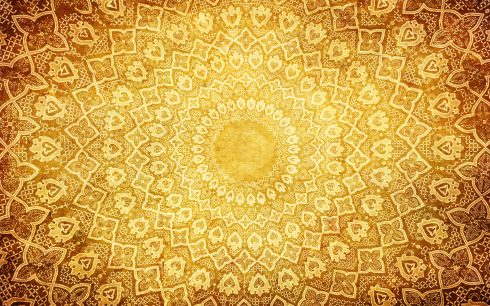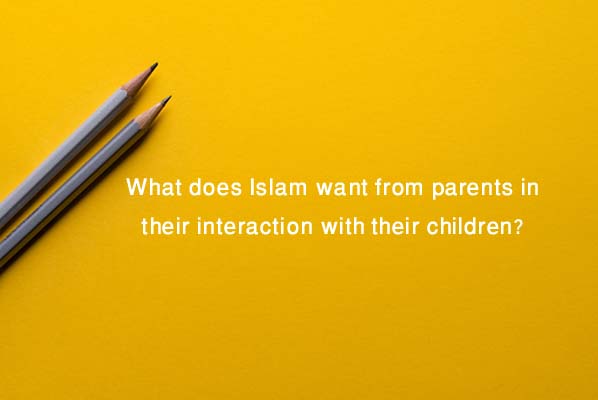In the Name of Allah, the Most merciful, the Most compassionate
In the Name of Allah, from whom I hope for nothing but bounty, and from whom I fear nothing but justice! I rely only upon His word, And I cling only to His cord! In Thee I seek sanctuary – O Possessor of pardon and good pleasure –from wrong and enmity, from the changes of time and the recurrence of sorrows, from the striking of mishaps, and from the expiration of my term before preparation and readiness. From Thee I seek guidance to that wherein is righteousness and being set right. From Thee I seek help in that which is linked to success and favorable response. Thee I beseech for the garment of well-being and its completion and for the covering of health and its permanence. I seek refuge in Thee, my Lord, from the goading of the satans, and I seek protection in Thy sovereignty from the injustice of the sovereigns. So accept my past prayers and fasting and make my tomorrow and what is after better than my present hour and my today! Exalt me in my clan and my people and protect me in my waking and my sleeping! For Thou art God, the Best Guardian, And Thou art the Most Merciful of the merciful. O God, I am quit before Thee on this day of mine and on all Sundays that follow it of associating others with Thee and of heresy, and I devote my supplication sincerely to Thee, addressing myself to Thy response. So bless Muhammad and the household of Muhammad, the best of Thy creation, the summoner to Thy truth, exalt me with Thy exaltation, which is never made to suffer loss, protect me with Thy eye, which never sleeps, and seal my affair by cutting me off from everything but Thee and my life with forgiveness! Surely Thou art the All-forgiving, the All-compassionate!
In the Name of Allah, the Most merciful, the Most compassionate
Praise belongs to Allah, who allowed one to witness when He created the heavens and the earth, and who took no helper when He authored the spirits! He has no associate in Divinity and no support in Unity. Tongues fall silent before the limit of describing Him, intellects fail before the core of knowing Him, tyrants fall low in awe of Him, faces are humbled in fear of Him, and everything mighty yields to His mightiness! So to Thee belongs praise, again and again, well-measured, continually, methodically! And may His blessings be upon His Messenger endlessly, His salutation everlastingly, eternally! O Allah, make the beginning of this day of mine righteousness, its middle prosperity, and its end success! I seek refuge in Thee from a day whose beginning is fright, whose middle is anxiety, and whose end is pain! O Allah, I pray forgiveness from Thee for every vow I have vowed, every promise I have promised, and every pledge I have pledged and then failed to keep for Thee. I ask Thee concerning the complaints of Thy servants against me: If there is a servant from among Thy servants or a handmaid from among Thy handmaids, who has against me a complaint because I have wronged him in respect to himself, his reputation, his property, his wife or his child, evil words I have spoken about him in his absence, an imposition upon him through inclination, caprice, scorn, zeal, false show, bigotry, whether he be absent or present, alive or dead, such that my hand has fallen short and my capacity has been too narrow to make restitution to him or to annul my obligation to him, I ask Thee, O He who owns all objects of need which are granted by His will and hasten to His desire -that Thou blessed Muhammad and the Household of Muhammad, makes [the one I have wronged] satisfied with me in the manner that Thou wills, and gives me mercy from Thee! Forgiveness decreases Thee not and giving injures Thee not, O Most Merciful of the merciful! O Allah, give me on every Monday two favours from Thee: the felicity to obey Thee at its beginning and the favour of Thy forgiveness at its end! O He who is Allah and none other than whom grants forgiveness for sins!
In the Name of Allah, the Most merciful, the Most compassionate
Praise belongs to Allah and praise is His right, since He deserves it abundant praise! I seek refuge in Him from the evil of my soul, for surely the soul commands to evil except as my Lord has mercy. I seek refuge in Him from the evil of Satan who adds sins to my sin. I seek protection with Him from every wicked tyrant, unjust sovereign and conquering enemy. O Allah, place me among Thy troops, for Thy troops – they are the victors, place me in Thy party, for Thy party – they are the ones who prosper, and place me among Thy friends, for Thy friends – no fear shall be upon them, nor shall they sorrow. O Allah, set right for me my religion, for it is the preserving tie of my affair, set right for me my hereafter, for it is the abode of my permanent lodging and to it I flee from the neighbourhood of the vile! Make life an increase for me in every good and death an ease for me from every evil! O Allah, bless Muhammad, the Seal of the Prophets and the completion of the number of the envoys, his Household, the good, the pure and his Companions, the distinguished, and give me on the Tuesday three things: Leave no sin for me unless Thou forgives it, no grief unless Thou takes it away, and no enemy unless Thou repels him! By means of ‘in the name of “Allah” ‘, the best of the Names, in the name of Allah, Lord of earth and heaven, I seek to repulse every hateful thing, the first of which is His anger, and I seek to attract every loveable thing, the first of which is His good pleasure! So seal me with forgiveness from Thee, O Patron of beneficence!
In the Name of Allah, the Most merciful, the Most compassionate
Praise belongs to Allah, who appointed the night to be a garment, and sleep for a rest, and day He appointed for a rising! To Thee belongs praise, for Thou roused me from my sleep, and had Thou willed, Thou wouldst have made it an everlasting praise that will never be cut off and whose number the creatures will never count! O Allah, to Thee belongs the praise, for Thou created, then proportioned, ordained and decreed, gave death and bestowed life, made sick and healed, made well and afflicted, sat upon the Throne and encompassed the Kingdom! I supplicate Thee with the supplication of one whose mediation is weak, whose stratagems have been cut off, whose term has drawn near, whose expectation from this world has shrunk, whose neediness for Thy mercy has intensified, whose remorse for his neglect has become great, whose slips and stumbles have become many, and whose repentance is devoted sincerely to Thy face. So bless Muhammad, the Seal of the Prophets, and his Household, the good, the pure, provide me with the intercession of Muhammad (Allah bless him and his Household) and deprive me not of his companionship! Surely Thou art the Most Merciful of the merciful! O Allah, decree for me on Wednesday four things: Induce me to be strong in obedience to Thee, to be joyful in worshipping Thee, to be desirous of Thy reward, and to abstain from that which would make incumbent upon me Thy painful punishment !Thou art Gentle to whom Thou wilt!
In the Name of Allah, the Most merciful, the Most compassionate
Praise belongs to Allah, who has taken away the shadowy night by His power and brought the sight-giving day through His mercy. He has clothed me in its brightness and given me its favour. O Allah, just as Thou hast spared me for this day, so also spare me for its likes, bless the prophet Muhammad and his Household, torment me not in it and in other nights and days by allowing me to commit unlawful acts and to clothe myself in sins; provide me with its good, the good of all within it, and the good of everything after it; and turn away from me its evil, the evil of all within it, and the evil of everything after it! O Allah, by the protective compact of Islam, I seek mediation with Thee!By the inviolability of the Qur’an, I rely upon Thee! By Muhammad the chosen (Allah bless him and his Household) I seek intercession with Thee! So recognise my protective compact by which I hope my need will be granted, O Most Merciful of the merciful! O Allah, decree for me on Thursday five things which none embraces but Thy generosity and none supports but Thy favours: health through which I may have the strength to obey Thee, worship by which I may deserve Thy plentiful reward, plenty in my state through lawful provision, and that Thou makes me secure in the places of fear through Thy security, and places me in Thy fortress against the striking of worries and sorrows! Bless Muhammad and his Household, and make my seeking his mediation as an intercessor give profit on the Day of Resurrection! Surely Thou art the Most Merciful of the merciful!
In the Name of Allah, the Most merciful, the Most compassionate
All Praise belongs to Allah, the First before the bringing forth and the giving of life, and the Last after the annihilation of all things, the All-knowing who forgets not him who remembers Him, decreases not him who thanks, Him, disappoints not him who supplicates Him, and cuts not off the hope of him who hopes in Him! O Allah, I call Thee to witness and Thou art sufficient witness and I call to witness all Thy angels, the inhabitants of Thy heavens, the bearers of Thy Throne, Thy prophets and Thy messengers whom Thou hast sent out, and the various kinds of creatures Thou hast brought forth, that I bear witness that Thou art Allah; there is no Allah but Thou, Thou alone, who hast no associate nor any equal, and Thy word has no failing, nor any change; and that Muhammad (Allah bless him and his Household) is Thy servant and Thy messenger; he delivered to the servants that with which Thou charged him, he struggled for Allah as is His due, he gave the good news of the truth of reward, and he warned of the veracity of punishment. O Allah, make me firm in Thy religion as long as Thou keeps me alive, make not my heart to swerve after Thou hast guided me, and give me mercy from Thee, surely Thou art the Giver. Bless Muhammad and the Household of Muhammad, make me one of his followers and his partisans, muster me in his band, and give me the success of accomplishing the obligatory observance of Friday, performing the acts of obedience which Thou has made incumbent upon me within it, and [receiving] the bestowal which Thou hast apportioned for its people on the Day of Recompense! Surely Thou art Mighty, All-wise!
In the Name of Allah, the Most merciful, the Most compassionate
In the name of Allah, the word of those who hold fast to Him, the speech of those who seek His protection! I seek refuge in Allah (high exalted is He) from the injustice of the unjust, the trickery of the enviers, and the oppression of the wrongdoers, and I praise Him beyond the praise of the praisers! O Allah, Thou art the One without a partner, and the King without having been made sovereign; no one opposes Thee in Thy decree and no one contests Thee in Thy kingdom! I ask Thee to bless Muhammad and his Household, Thy servant and Thy messenger, inspire me with a thanksgiving for Thy favours which will take me to the utmost limit of Thy good pleasure, help me through the gentleness of Thy solitude to obey Thee, hold fast to worshipping Thee, and deserve Thy reward, have mercy upon me, bar me from acts of disobedience toward Thee as long as Thou keeps me alive, give me success in what profits me as long as Thou sparest me, expand my breast through Thy Book, lessen my burden through its recitation, bestow upon me health in my religion and my soul, estrange not my intimates from me, and complete Thy beneficence in what is left of my lifetime, just as Thou hast shown beneficence in that of it which has passed! O Most Merciful of the merciful!



